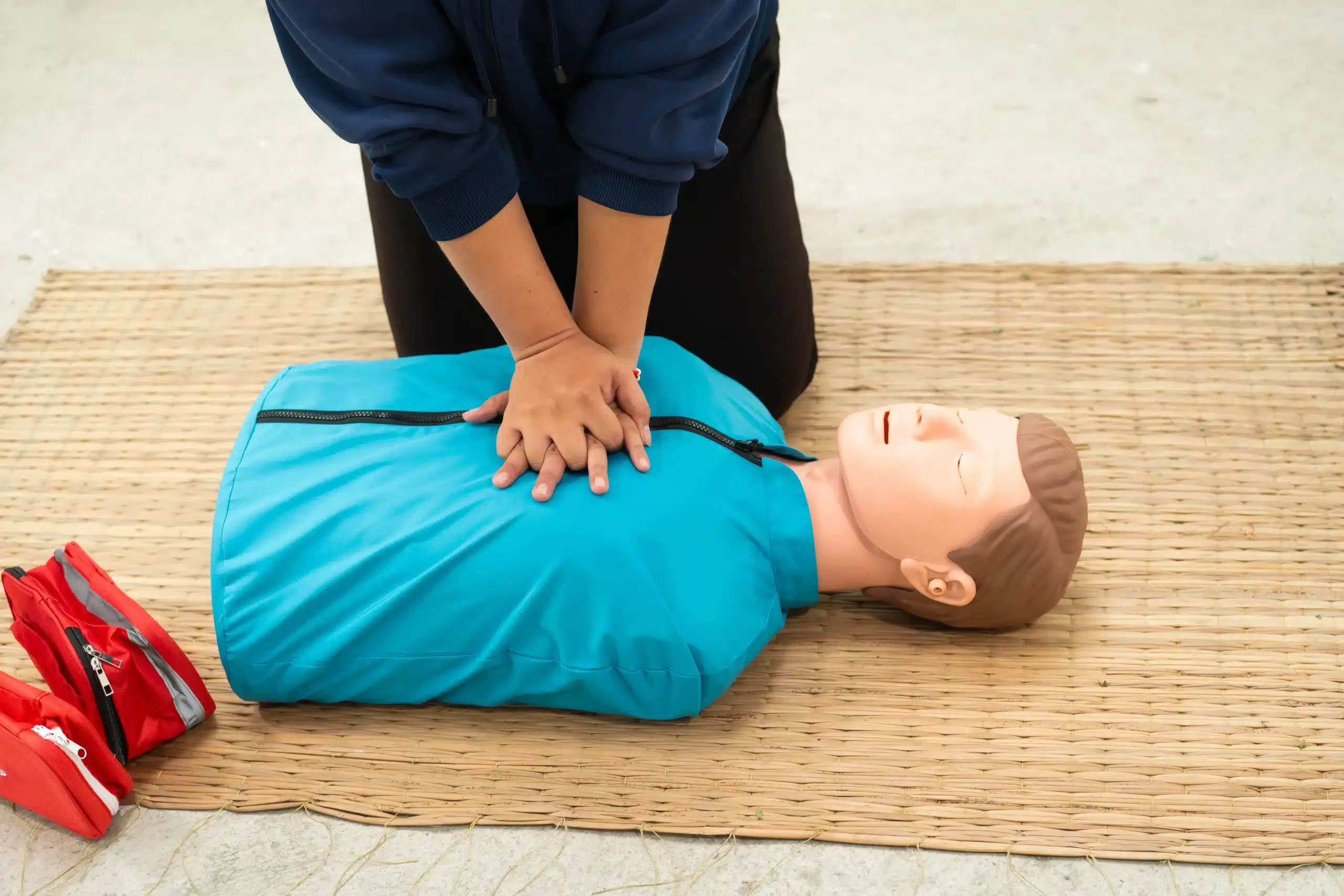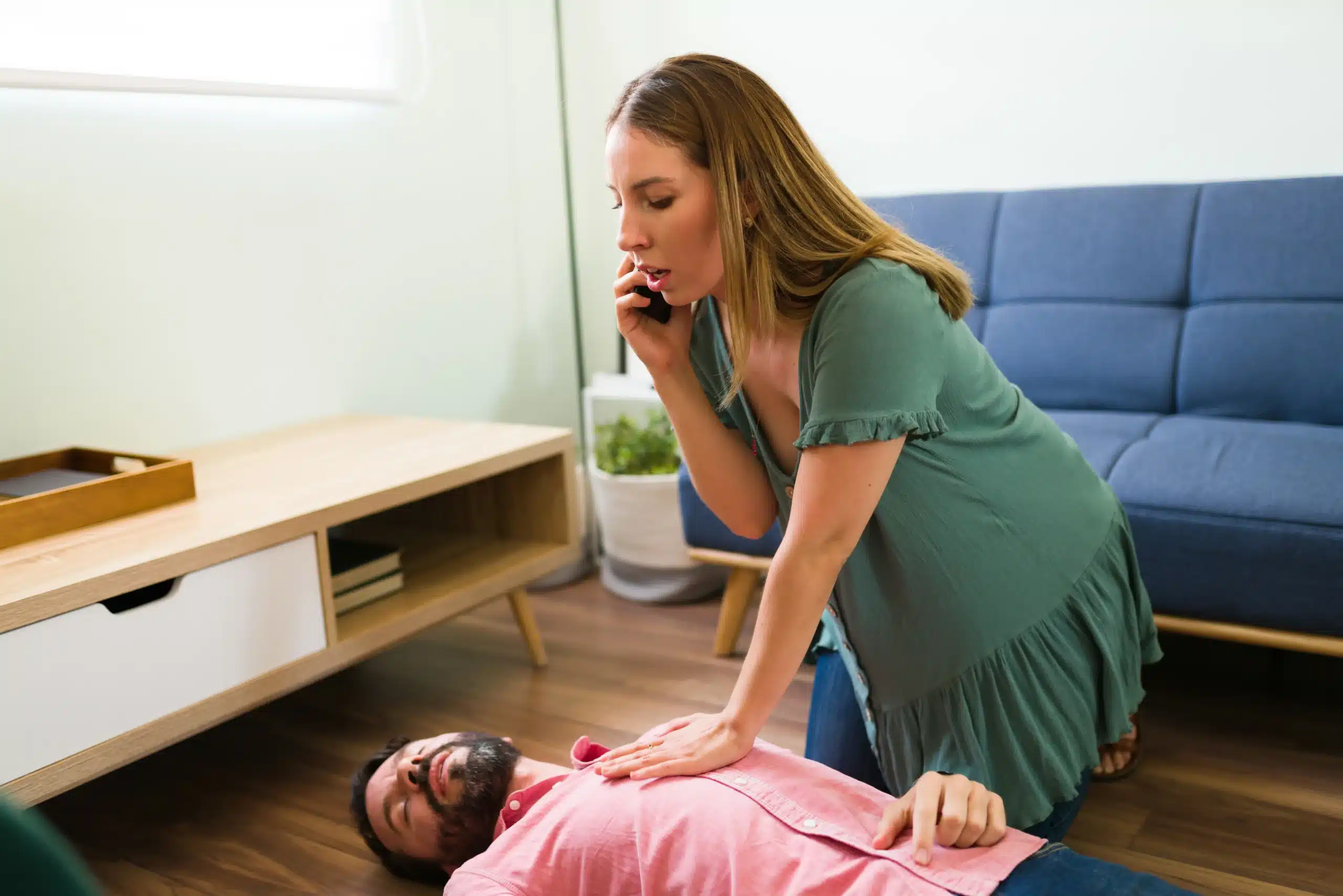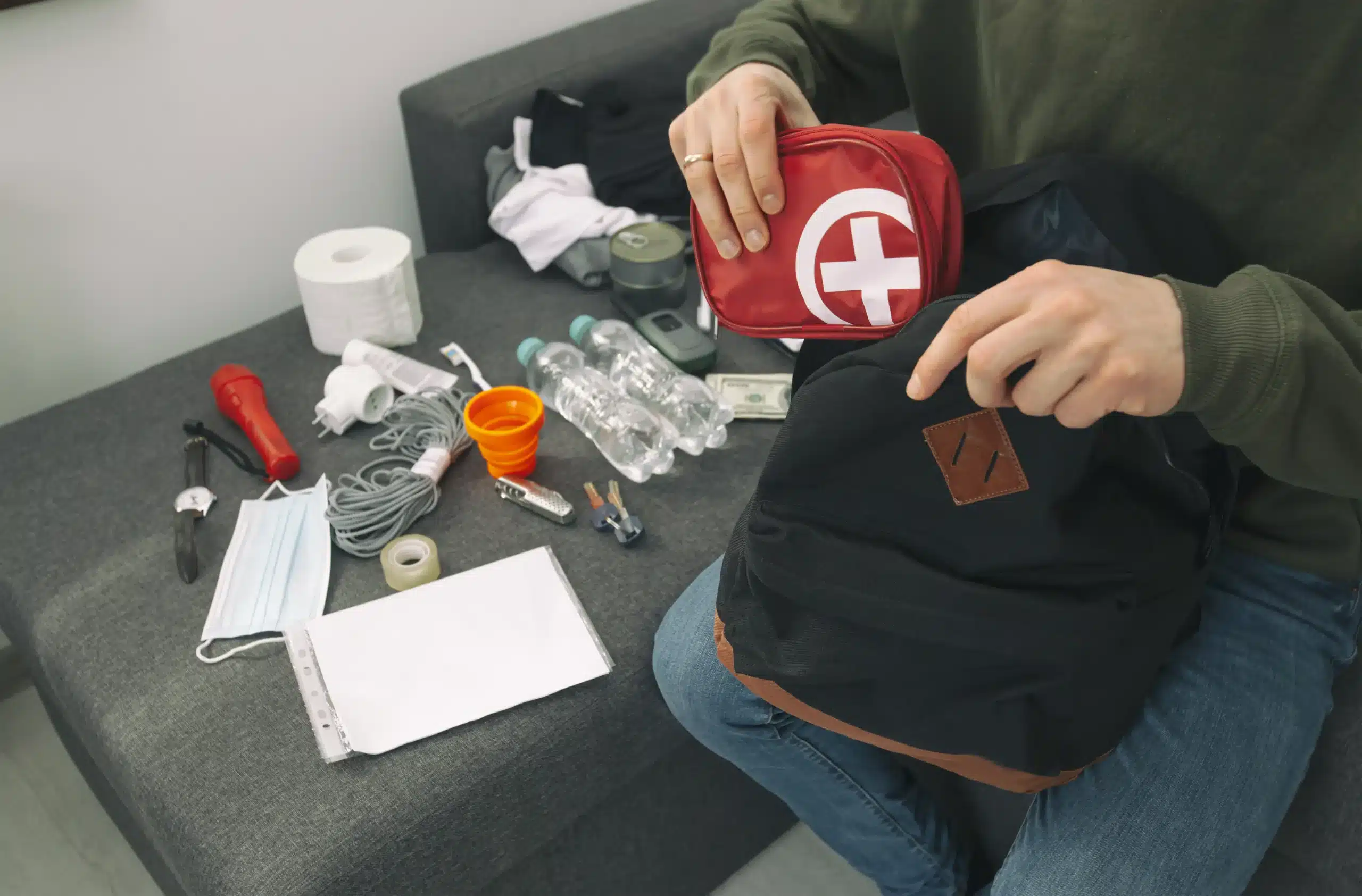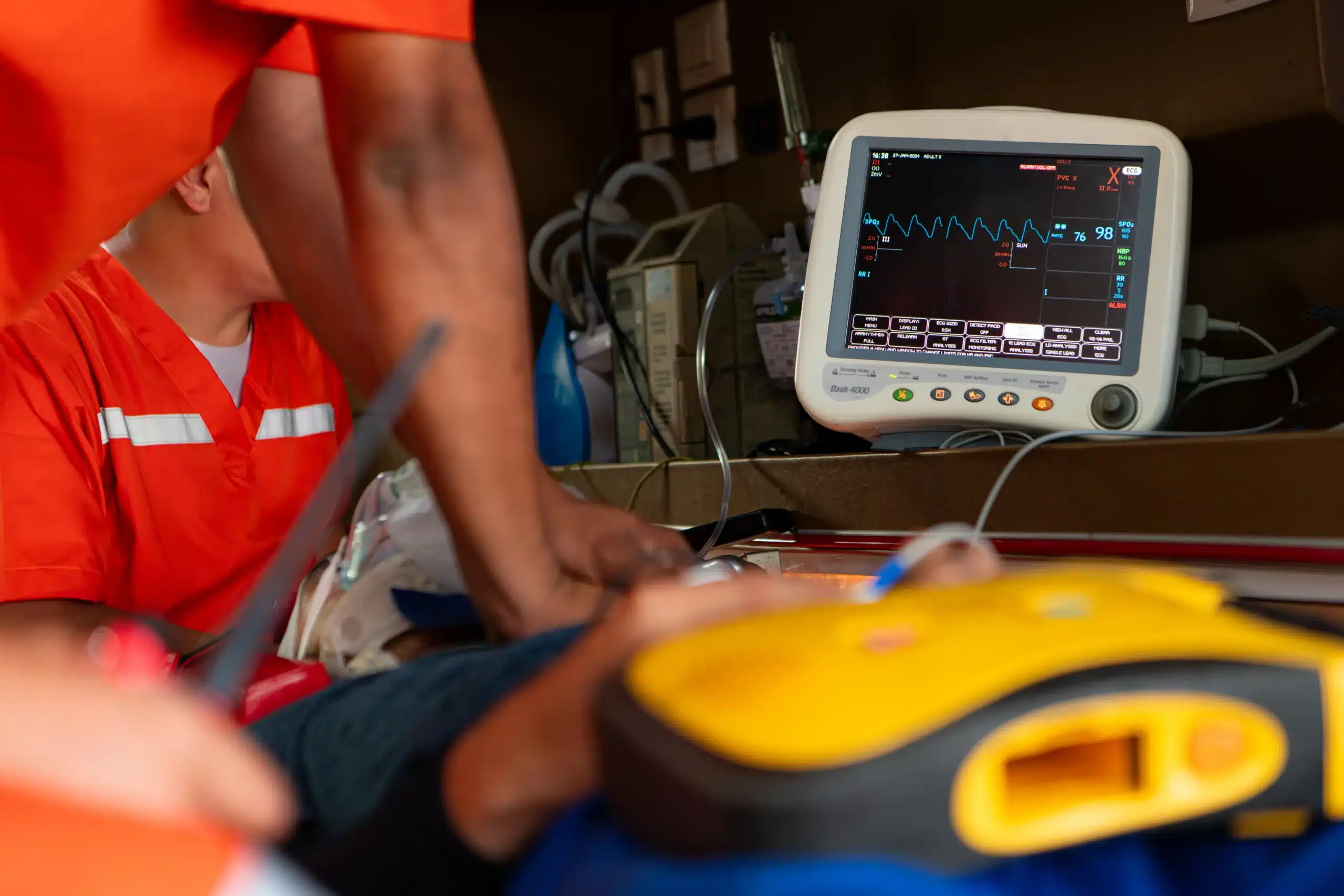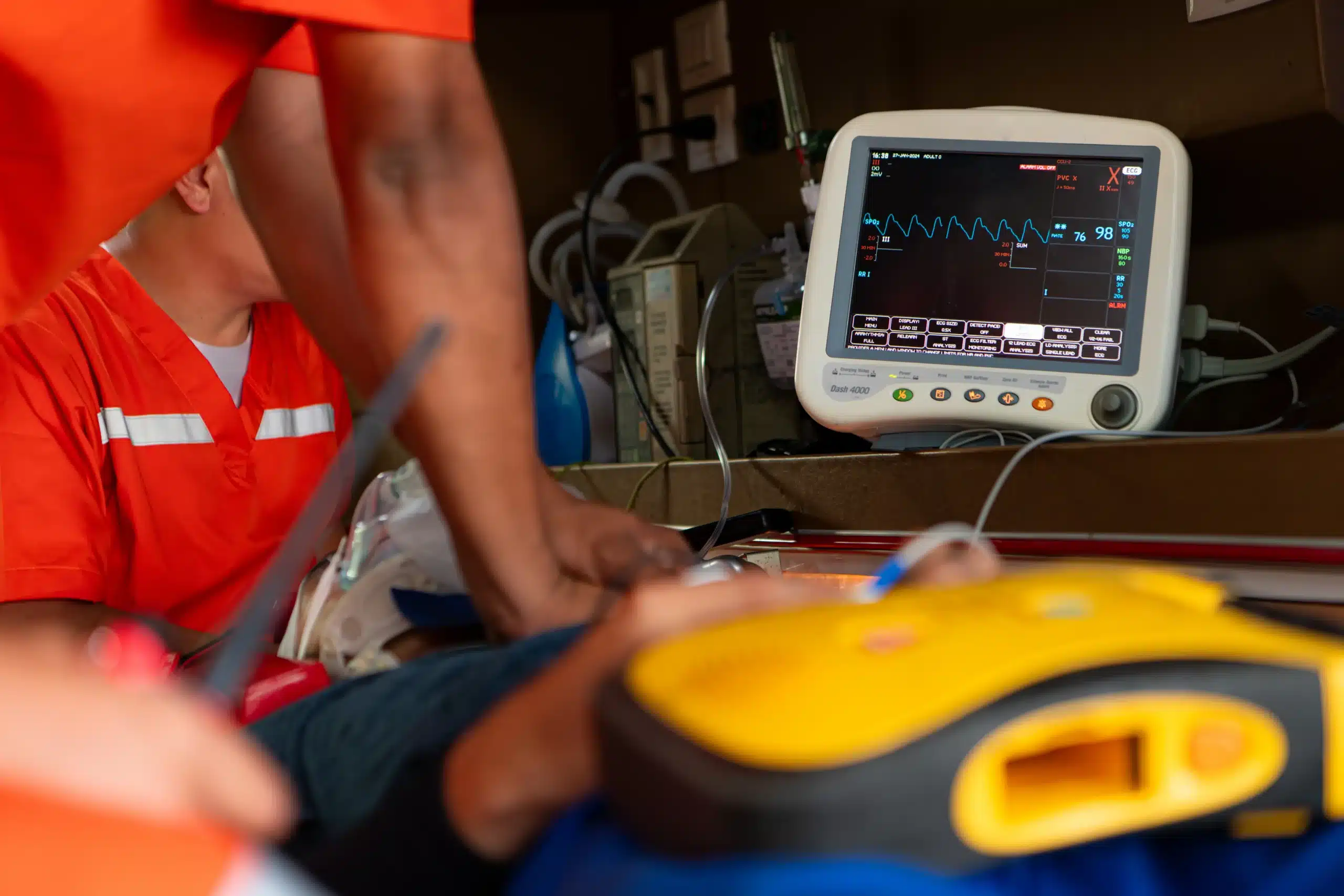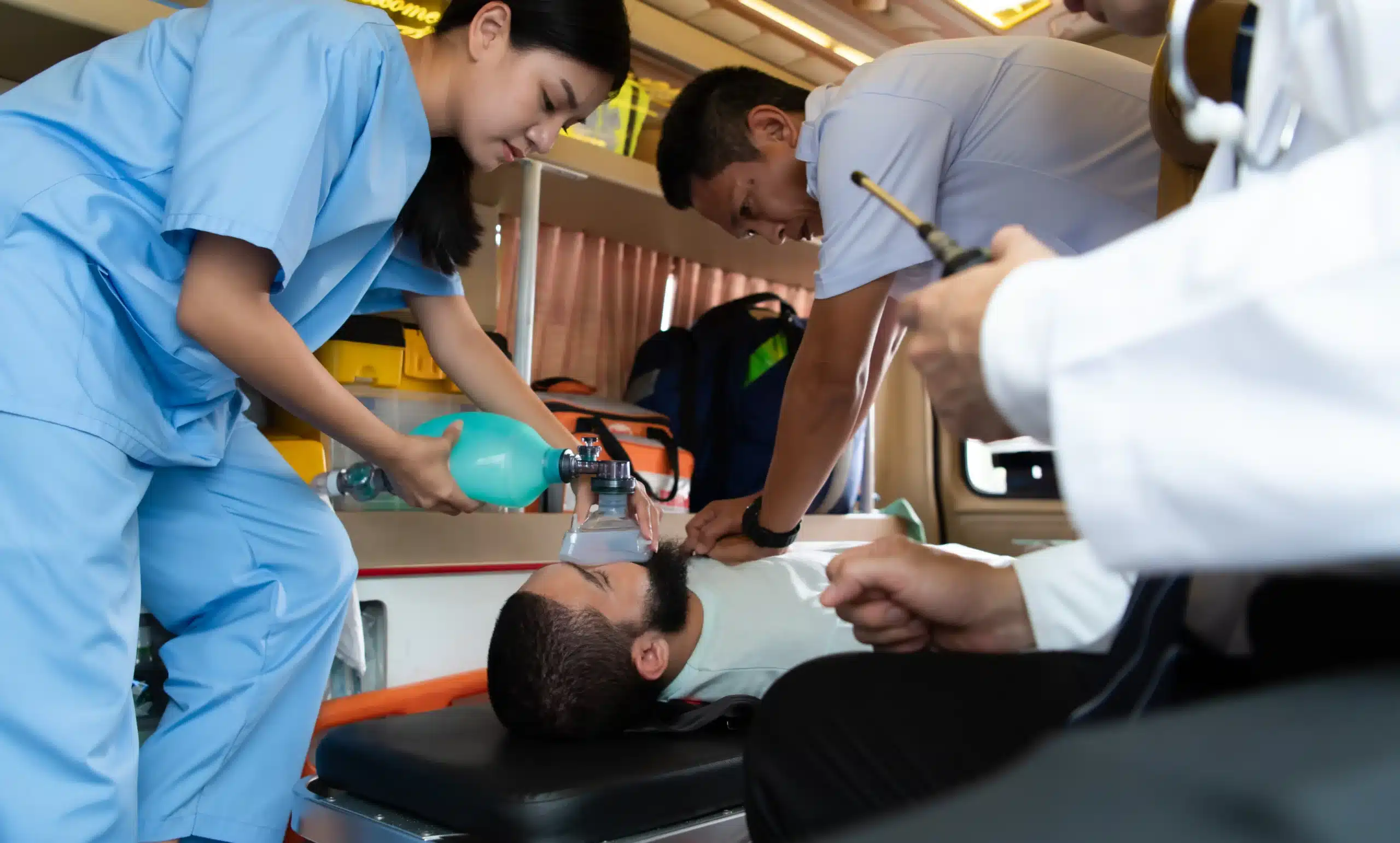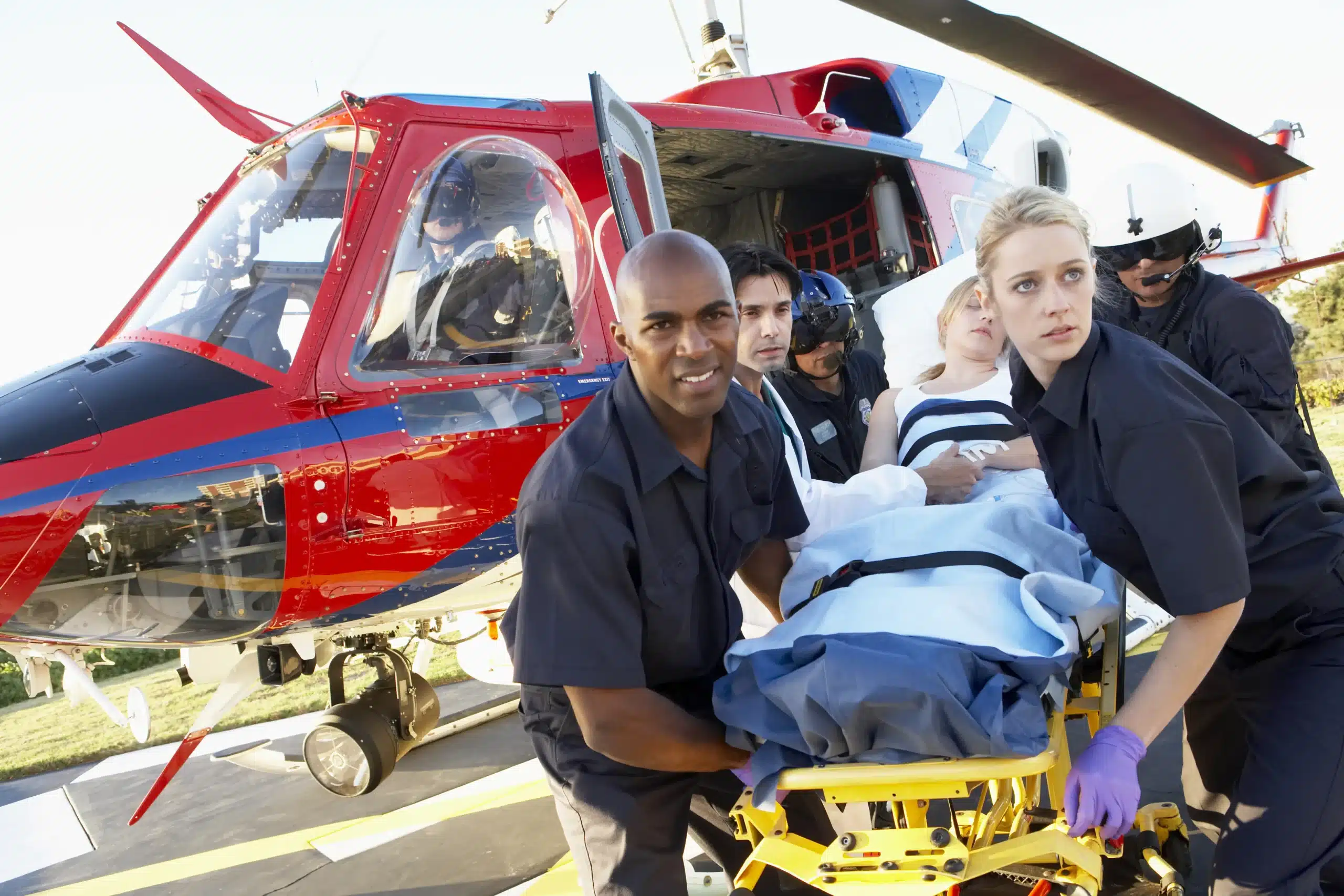In the dynamic world of dentistry, patient well-being extends beyond oral health. Being prepared for medical emergencies is a critical aspect of responsible practice. Advanced Cardiovascular Life Support (ACLS) certification empowers dentists to handle life-threatening situations effectively, ensuring patient safety and positive outcomes. This article explores the importance of ACLS for dentists in Rocklin, providing a comprehensive overview of ACLS courses for dentists in Rocklin, key skills acquired, and the benefits of certification. We’ll also address common misconceptions, legal and ethical considerations, and the practical application of ACLS in a dental setting.
Key Takeaways
- ACLS training prepares dentists for the unexpected: Even though medical emergencies in dental offices are rare, ACLS certification provides the skills to manage them effectively, improving patient safety and demonstrating a commitment to providing comprehensive care.
- Choosing the right ACLS course requires careful consideration: Look for accredited programs with comprehensive curriculums, experienced instructors, and hands-on training opportunities. Consider your learning style and schedule when deciding between in-person and online options.
- Maintaining ACLS skills is crucial for long-term preparedness: Stay current with the latest guidelines and best practices through recertification and continuing education. This ongoing commitment ensures you’re always ready to respond effectively in a medical emergency.
What is ACLS Certification & Why Do Dentists Need It?
As a dentist, your primary focus is oral health. But occasionally, you might encounter a medical emergency in your practice. That’s where Advanced Cardiovascular Life Support (ACLS) training comes in. It prepares you to handle life-threatening cardiovascular emergencies, ensuring your patients receive prompt and effective care.
What is ACLS in Dentistry?
ACLS certification is a specialized program designed to equip healthcare providers with the skills to manage cardiac and respiratory emergencies. While these situations are rare in dental settings, being prepared is crucial for patient safety. ACLS-certified dentists can confidently address emergencies like cardiac arrest, stroke, and respiratory distress, providing immediate care while waiting for emergency medical services. This quick action can significantly impact a patient’s outcome.
What Skills Will You Learn in ACLS Training?
ACLS training covers a range of life-saving interventions. You’ll learn how to perform high-quality CPR, use a defibrillator, administer medications, manage airways, and understand the algorithms for treating various cardiovascular emergencies. The program emphasizes teamwork and communication, preparing you to lead and coordinate a response in a high-pressure situation. These skills empower you to stabilize patients and potentially prevent further complications.
Common ACLS Misconceptions for Dentists
One common misconception is that ACLS certification is a “one-and-done” deal. In reality, ACLS certification requires regular renewal. This ensures you stay current with the latest guidelines and best practices in emergency cardiovascular care. Another misconception is that ACLS is simply “advanced CPR.” While CPR is a core component, ACLS training encompasses a broader range of skills and knowledge, including advanced airway management, pharmacology, and team dynamics. It’s a comprehensive approach to managing complex cardiovascular emergencies, going beyond the basics of CPR.
Best ACLS Courses for Dentists in Rocklin
Finding the right ACLS course can feel overwhelming, but several reputable providers in Rocklin make it easier. Here are a few options to explore:
Rocklin CPR Classes
Rocklin CPR Classes offers a range of American Heart Association courses, including BLS, ACLS, PALS, and First Aid. They focus on providing competitive prices and convenient scheduling with daily classes, making it easier for busy professionals to fit training into their schedules. Learn more about their ACLS course on their website. They also offer group discounts for CPR training.
Safety Training Seminars
Safety Training Seminars provides ACLS training in Rocklin designed for healthcare providers, including dentists. Their courses equip participants with the skills to manage cardiac emergencies. For the latest information on their offerings and schedules, contact them directly.
American Heart Association Training Centers
The American Heart Association offers a convenient online ACLS course. This format works well for dentists who prefer self-paced learning or have demanding schedules. The online course covers essential advanced cardiovascular life support techniques, preparing dentists for emergencies.
Local Hospitals and Medical Centers
Local hospitals and medical centers in Rocklin often provide ACLS training, sometimes tailored for dental professionals. Check with hospitals like Sutter Roseville Medical Center or Kaiser Permanente Medical Center to see if they have relevant ACLS courses. These courses often focus on recognizing and managing cardiac emergencies in dental settings, including CPR, defibrillation, and medication delivery.
Choosing the Right ACLS Course
Finding the right Advanced Cardiovascular Life Support (ACLS) course is crucial for dentists who want to provide the best emergency care. Here’s what to consider when selecting a program:
Accreditation and Recognition
Look for courses that align with the American Heart Association (AHA) guidelines. This ensures your training meets the highest standards and is recognized by professional organizations like the American Dental Association, the Academy of General Dentistry, and the Dental Assisting National Board. Proper accreditation validates the quality and relevance of your certification.
Course Content and Curriculum
A comprehensive ACLS course should cover essential skills such as recognizing and managing cardiac arrest, administering medications, understanding electrocardiograms (ECGs), and performing effective team dynamics during resuscitation scenarios. The curriculum should also address the specific needs of dental practices, such as recognizing and managing medical emergencies that may arise during dental procedures.
Instructor Qualifications
Experienced instructors are key to a successful learning experience. Choose a course led by qualified professionals with backgrounds in healthcare, such as nurses, paramedics, or other experienced ACLS providers. Their expertise will provide valuable insights and practical guidance, and they can offer real-world scenarios and answer your specific questions.
In-Person vs. Online Options
Consider your learning style and schedule when deciding between in-person and online options. In-person classes offer hands-on practice and direct interaction with instructors, while online courses provide flexibility for busy professionals. Some programs offer a blended approach, combining online learning with in-person skills sessions. Evaluate which format best suits your needs and preferences.
Hands-on Practice
Practical application is essential for mastering ACLS skills. Look for courses that emphasize hands-on training with simulations and scenarios. High-quality CPR techniques, including chest compressions and airway management, are crucial components of effective emergency response. The more you practice, the more confident and prepared you’ll be in a real emergency. Consider the amount of hands-on training offered in each course and choose one that provides ample opportunities to develop your skills.
ACLS Certification: Cost & Time Commitment
So you’re ready to get ACLS certified—but how much will it cost, and how much time will it take? Let’s break down the typical expenses and time commitment for ACLS courses in Rocklin.
Average Course Prices in Rocklin
ACLS course fees in Rocklin, CA, vary. Some providers advertise low prices starting at $12.99 for basic CPR. However, ACLS courses are more advanced and typically more expensive. For accurate pricing on ACLS certification, contact providers like Rocklin CPR Classes directly. They can give you the most up-to-date information for their specific courses.
Duration and Time Commitment
Plan to dedicate roughly 12 hours to complete your ACLS certification. Many providers offer a blended learning format, combining online modules with in-person skills sessions. This flexibility makes it easier to fit the training into your busy schedule. Rocklin CPR Classes offers various course schedules and formats to accommodate different needs.
Value for Dental Practices
While there’s an upfront investment of time and money, ACLS training offers significant value. It empowers your team to handle medical emergencies effectively, creating a safer environment for your patients and boosting their confidence in your practice. ACLS certification equips you with essential skills to manage cardiac emergencies, from performing CPR to administering medications. This preparedness can make a real difference in critical situations.
How to Get ACLS Certified
Getting your ACLS certification is a straightforward process. This section breaks down the steps involved, from prerequisites to study materials.
Prerequisites and Enrollment
Before enrolling in an ACLS course, you’ll likely need a current BLS (Basic Life Support) certification. This ensures you have foundational CPR knowledge and skills. Some ACLS courses for dentists may also require proof of your dental license or registration. Check with your chosen provider, like Rocklin CPR Classes, for their specific requirements. Enrollment is typically done online through the training center’s website or by phone. You can often find a convenient class schedule to fit your availability.
Course Structure
ACLS courses blend online learning with in-person skills sessions. The online portion covers essential concepts like recognizing and managing cardiac arrest, stroke, and other respiratory emergencies. You’ll learn algorithms for treatment and practice making critical decisions in simulated scenarios. The in-person component focuses on hands-on training with equipment like bag-mask ventilation devices and defibrillators. Expect the total course to take approximately 12 hours, though this can vary depending on the provider and format. Surefire CPR offers a good example of this blended learning approach. This combination of online and in-person training allows for flexibility and practical application.
Exams and Skills Assessments
To earn your ACLS certification, you’ll need to pass both a written exam and a practical skills test. The written exam assesses your understanding of the course material, including treatment protocols and pharmacology. The skills test evaluates your ability to perform life-saving procedures in a simulated emergency. This often involves demonstrating your skills on a voice-assisted manikin, as described by Bay Area CPR. Don’t worry; support is usually available if you have questions during the test. These assessments ensure you’re prepared to handle real-world emergencies.
Study Materials and Resources
Most ACLS courses provide study materials, including textbooks, online resources, and practice exams. Some providers, like ACLS.com, offer 24/7 access to online resources, making it easier to study at your own pace. Take advantage of these resources to prepare for the exams and reinforce your learning. Reviewing case studies and practicing with online simulations can significantly improve your confidence and competence. Having access to a variety of study materials can make the learning process more effective.
Using ACLS Skills in Your Dental Practice
Knowing ACLS isn’t just about checking a box on your list of certifications. It’s about integrating these lifesaving skills into the daily operations of your dental practice. This means establishing clear protocols, consistent training, and a shared understanding of how to respond to emergencies.
Create Emergency Response Protocols
Start by developing a comprehensive emergency response protocol. This document should outline the steps to take in various medical emergencies, from a mild allergic reaction to a cardiac event. Having a clear plan reduces hesitation and ensures everyone on your team knows their role. This preparation creates a culture of patient safety, reassuring patients that their well-being is a top priority. Consider posting a concise version of your emergency protocol in a visible location for quick reference. Cascade Training Center offers helpful resources for developing these protocols.
Run Regular Team Training and Drills
Regular team training and mock drills are essential for maintaining proficiency in ACLS skills. These sessions reinforce learned procedures, improve team communication, and build confidence in handling real-life emergencies. Think of it like a fire drill—everyone needs to know exactly what to do when the alarm sounds. This ongoing training fosters a culture of continuous learning and makes your team more efficient and cohesive. DentalPost highlights the importance of regular practice to ensure your team is always prepared. Consider scheduling short, regular refreshers rather than infrequent, lengthy training sessions.
Example Scenarios for Dentists
While we hope you never have to use your ACLS skills, understanding how they apply to real-world dental situations is crucial. Dental procedures, even routine ones, can sometimes trigger unexpected medical events. The use of local anesthetics, certain medications, or even the stress of a procedure can cause reactions ranging from fainting to severe allergic reactions or even cardiac events. DSTAR Education offers a guide on managing basic life support in dental emergencies. Knowing how to recognize and respond to these situations is where your ACLS training becomes invaluable. For example, high-quality CPR, a core component of ACLS, is essential for maintaining blood circulation during a cardiac arrest. Similarly, understanding how to manage respiratory distress, a potential complication of some dental procedures, can be lifesaving. Cascade Training Center discusses why these skills are so important for patient safety. By being prepared for these scenarios, you can provide the best possible care for your patients and create a safer environment for everyone in your practice.
Maintaining Your ACLS Certification
Once you’ve earned your ACLS certification, the work doesn’t stop there. Maintaining your skills and staying current with the latest guidelines is crucial for providing the best possible patient care. This section covers key aspects of maintaining your ACLS certification.
Renewal Requirements
ACLS certification isn’t permanent. It typically expires after two years. Recertification ensures healthcare providers stay updated with the latest advancements in ACLS care, like those detailed in the American Heart Association’s ACLS guidelines. Keep track of your certification expiration date and plan to recertify before it lapses. This prevents any gaps in your credentials and ensures you’re always prepared for emergencies. Check with your certifying body, such as the American Heart Association, for specific renewal requirements and recertification courses.
Continuing Education
Continuing education is key to maintaining proficiency in ACLS. Look for opportunities to expand your knowledge and refine your skills. ACLS.com offers online continuing education classes for dental professionals, providing convenient 24/7 access. These courses often cover updates to protocols, new research, and emerging best practices. Engaging in continuing education demonstrates your commitment to lifelong learning and ensures you’re equipped to handle any emergency situation.
Staying Up-to-Date on Protocols
Emergency cardiovascular care protocols are constantly evolving. Staying informed about the latest updates is essential for maintaining your ACLS certification and providing effective care. DOCS Education offers an ACLS Recertification program that provides dentists with updated information. Resources like DentalPost emphasize the importance of continuous learning in ACLS training. Regularly review updated guidelines, attend workshops, and participate in online discussions to stay on top of any changes that may impact your practice. This proactive approach will help you maintain a high standard of care and ensure patient safety.
Benefits of ACLS for Dental Practices
Having your team trained in Advanced Cardiovascular Life Support (ACLS) offers several key advantages for your Rocklin dental practice. It’s about more than just checking a box; it’s about building a safe and prepared environment for both patients and staff.
Improve Patient Safety
Patient safety is paramount in any healthcare setting, including dental offices. While dental procedures are generally safe, medical emergencies can occur. A patient could experience a sudden cardiac event, allergic reaction, or another life-threatening situation. Having a dental team trained in ACLS ensures a swift and effective response, minimizing potential complications and improving patient outcomes. Knowing your team is prepared can also reassure patients, building trust and confidence in your practice. As Cascade Training points out, ACLS training contributes to a culture of patient safety, giving patients peace of mind.
Build Professional Credibility
ACLS certification demonstrates a commitment to excellence and professionalism. It shows that your team has invested time and effort in acquiring advanced life-saving skills. This commitment to continuing education enhances your credibility among patients, colleagues, and the wider community. As SureFire CPR notes, dentists with ACLS certification have an advantage, as they are equipped to handle emergencies that can occur during dental procedures. This specialized training can elevate your practice’s reputation and attract patients seeking high-quality care.
Potential Insurance Benefits
While the primary focus of ACLS is patient well-being, there can be secondary financial benefits for your practice. Some insurance providers may offer lower premiums or better liability coverage to dental practices with ACLS-certified staff. This is because a well-trained team can mitigate risks and potentially reduce the severity of claims. While not guaranteed, exploring potential insurance benefits related to ACLS certification is worth considering. It demonstrates proactive risk management and could lead to cost savings. Contact us to learn more about ACLS Certification.
Meet Regulatory Requirements
While California doesn’t currently mandate ACLS certification for all dentists, some specialized practices or procedures might. Even if not mandatory, maintaining ACLS certification ensures your team stays current with the latest emergency protocols and best practices. Regular recertification reinforces essential skills and knowledge, allowing your team to respond confidently and effectively in critical situations. Staying ahead of potential regulatory changes demonstrates a proactive approach to patient safety and ensures your practice remains compliant.
Legal & Ethical Considerations for Dentists with ACLS
While medical emergencies in dental settings are rare, they can happen. Having a team trained in Advanced Cardiovascular Life Support (ACLS) demonstrates a commitment to patient well-being and significantly impacts your practice, both legally and ethically.
Liability Protection
ACLS training contributes to a culture of patient safety. Knowing your team can handle emergencies reassures patients and potentially reduces liability in adverse events. While ACLS certification doesn’t eliminate all legal risks, it demonstrates a proactive approach to risk management. It shows you’ve taken steps to prepare your team for low-probability, high-impact situations. This preparedness can be a strong defense should an emergency occur in your practice. Cascade Training offers valuable information on patient safety and risk management in dentistry.
Professional Responsibilities
Ethically, dentists have a responsibility to provide the best possible care, including managing medical emergencies. ACLS training equips dental professionals to identify and address emergencies promptly. Early intervention can prevent escalation and improve patient outcomes. This proactive approach aligns with the core ethical principles of beneficence (acting in the patient’s best interest) and non-maleficence (avoiding harm). Cardiox Care LLC emphasizes the importance of ACLS for dentists in handling cardiac emergencies.
Scope of Practice
ACLS certification enhances a dental practice’s emergency preparedness. While not always mandatory, ACLS training empowers dentists to handle a broader range of medical situations. This can be particularly important in areas with limited access to immediate advanced medical care. SureFire CPR highlights the advantages of ACLS certification for dentists in emergency situations. As noted by DentalPost, ACLS training fosters teamwork and improves overall practice efficiency, benefiting both routine procedures and complex cases. The skills learned contribute to smoother operations and better coordination of care within the dental team.
Related Articles
- ACLS Renewal Sacramento: Your Complete Guide – Rocklin CPR Classes
- ACLS Certification in Roseville: Your Complete Guide – Rocklin CPR Classes
- First-Aid Training in Sacramento: Your Complete Guide – Rocklin CPR Classes
- Basic Life Support (BLS) in Sacramento: Your Complete Guide – Rocklin CPR Classes
- Why CPR is Critical in Healthcare – CPR and First-Aid Training
Frequently Asked Questions
Is ACLS certification required for dentists in Rocklin, California?
While not currently mandated for all dentists in California, ACLS certification demonstrates a commitment to patient safety and preparedness for medical emergencies. Certain specialized practices or procedures may require it, and it’s a valuable asset for any dental professional.
What does ACLS training cover beyond basic CPR?
ACLS goes beyond basic CPR to include advanced airway management, pharmacology for cardiac emergencies, ECG interpretation, and team dynamics during resuscitation. It equips you with a comprehensive approach to managing complex cardiovascular emergencies.
How much does ACLS certification cost, and how long does it take?
ACLS course costs vary in Rocklin. Contact providers like Rocklin CPR Classes directly for up-to-date pricing. The time commitment is typically around 12 hours, often spread across online modules and in-person skills sessions.
What are the benefits of ACLS certification for my dental practice?
ACLS certification enhances patient safety, builds professional credibility, may offer insurance benefits, and helps meet potential regulatory requirements. It demonstrates a commitment to providing high-quality care and prepares your team for emergencies.
How can I maintain my ACLS certification once I’ve earned it?
ACLS certification typically requires renewal every two years. Stay current with the latest guidelines through continuing education courses, workshops, and online resources. Regularly review updated protocols and participate in refresher training to maintain your skills.
